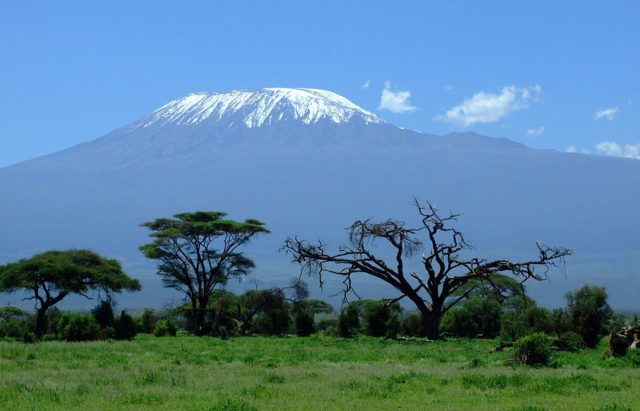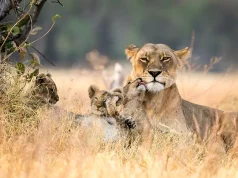
Adventure is often portrayed as something grand and exhilarating, a pursuit of adrenaline that leaves you breathless in more ways than one. Yet, true adventure lies not just in the thrill, but in the transformative experiences that shape our perspectives on life. When it comes to such life-altering undertakings, few experiences rival the challenge of climbing Kilimanjaro. As Africa’s highest peak, this majestic mountain is more than just a geographical landmark; it’s a rite of passage that reshapes your understanding of adventure and resilience.
The Call of a Challenge
Taking on Kilimanjaro isn’t just about reaching the summit; it’s about what happens along the journey. The trek invites you to push boundaries, both physically and mentally. For many, it serves as a metaphor for life’s obstacles—numerous trails twist and turn, with some paths proving more difficult than anticipated. Each stage of the climb offers unique challenges that compel you to dig deep, encouraging personal growth and introspection.
During the expedition, you might find yourself navigating through lush rainforest, across desolate alpine desert, or finally, up to the icy summit of Uhuru Peak. The diverse landscapes serve as a reminder of the variety life has to offer and the beauty that can emerge from adversity. You can experience Africa’s highest peak up close and personal, gaining perspective not only on the physical challenge but also on the emotional growth that can accompany it.
Building Connection with Nature
When you climb Kilimanjaro, you’re not just ascending a mountain; you’re immersing yourself in nature’s raw beauty. The experience is multi-sensory, with the cool, crisp air filling your lungs, the warmth of the sun touching your skin, and the stunning vistas continuously unfolding before your eyes.
Nature has an innate ability to help us reconnect with ourselves. As you ascend to higher altitudes, the distractions of daily life begin to fade. Phone notifications and urban noise melt away, replaced by the rustle of leaves, the whisper of the wind, and the rhythm of your heartbeat. These elements encourage mindfulness and allow you to reflect on what truly matters.
The Power of Community
Adventure is often best when shared. The Kilimanjaro experience is rich in camaraderie, as climbers from all walks of life gather to tackle the mountain together. This shared purpose fosters a sense of community—strangers become friends, united by the struggle of the climb.
The local porters and guides are an invaluable part of this experience as well. Their knowledge and expertise not only aid your ascent but also offer insight into the culture and traditions of Tanzania. Engaging with them fosters a richer understanding of the human experience and highlights the importance of teamwork and collaboration.
As the journey progresses, you witness the power of encouragement. Those moments, when you’re battling fatigue or self-doubt, become pivotal. Encouragement from both peers and guides can serve as a lifeline, pushing you to keep going when you’re tempted to give up. This shared journey teaches you that no one climbs alone, whether tackling a mountain or facing life’s trials.
A Lesson in Resilience
Reaching the summit is only part of the Kilimanjaro experience. The journey down can be just as pivotal, offering an opportunity to absorb what you’ve learned. The descent highlights the importance of resilience and adaptability. Just as in life, the path to success is often not linear; it’s fraught with unexpected turns and challenges.
The tendency to fixate on the summit can obscure the valuable lessons learned along the way. The experience can teach you that goals are often a series of small steps, setbacks, and moments of triumph. Achieving something meaningful often requires patience, endurance, and the ability to embrace uncomfortable situations.
Personal Growth and Reflection
Climbing Kilimanjaro often catalyses profound personal growth. It’s a journey that invites you to confront your fears, embrace vulnerability, and unearth untapped strengths. Reaching the summit is exhilarating, yes, but it’s the self-discovery accrued during the climb that resonates most.
Reflecting on your motivations for undertaking such a trek can yield insights that stay with you long after descending the mountain. Was this a test of physical endurance, a means of escaping the routine, or an opportunity for self-discovery? Whatever the reason, the experience inevitably reshapes your view of yourself and your capabilities.
Carrying the Lessons Home
Upon returning from Kilimanjaro, the impact of the adventure often lingers. The lessons learned—about community, resilience, and our connection to nature—continue to reverberate in everyday life. You may find yourself approaching challenges with renewed confidence, embracing uncertainty as a source of growth rather than a barrier.
Moreover, your perspective on what constitutes an adventure may broaden. It’s easy to romanticise epics like Kilimanjaro, but the little moments in life can be equally adventurous if approached with the same spirit. This mindset can transform mundane experiences into exciting opportunities for growth.
Conclusion
Climbing Kilimanjaro is not merely a physical challenge, but a journey that holds the potential to transform your understanding of adventure. From reflecting on personal limits to fostering connections with fellow climbers and nature alike, each aspect contributes to a profound shift in perspective. The lessons learned on that majestic mountain can serve as guideposts, helping you navigate the peaks and valleys of everyday life with renewed purpose and resilience. As you ponder your next adventure, remember that it’s often the journey—rather than the destination—that truly shapes who we are.





